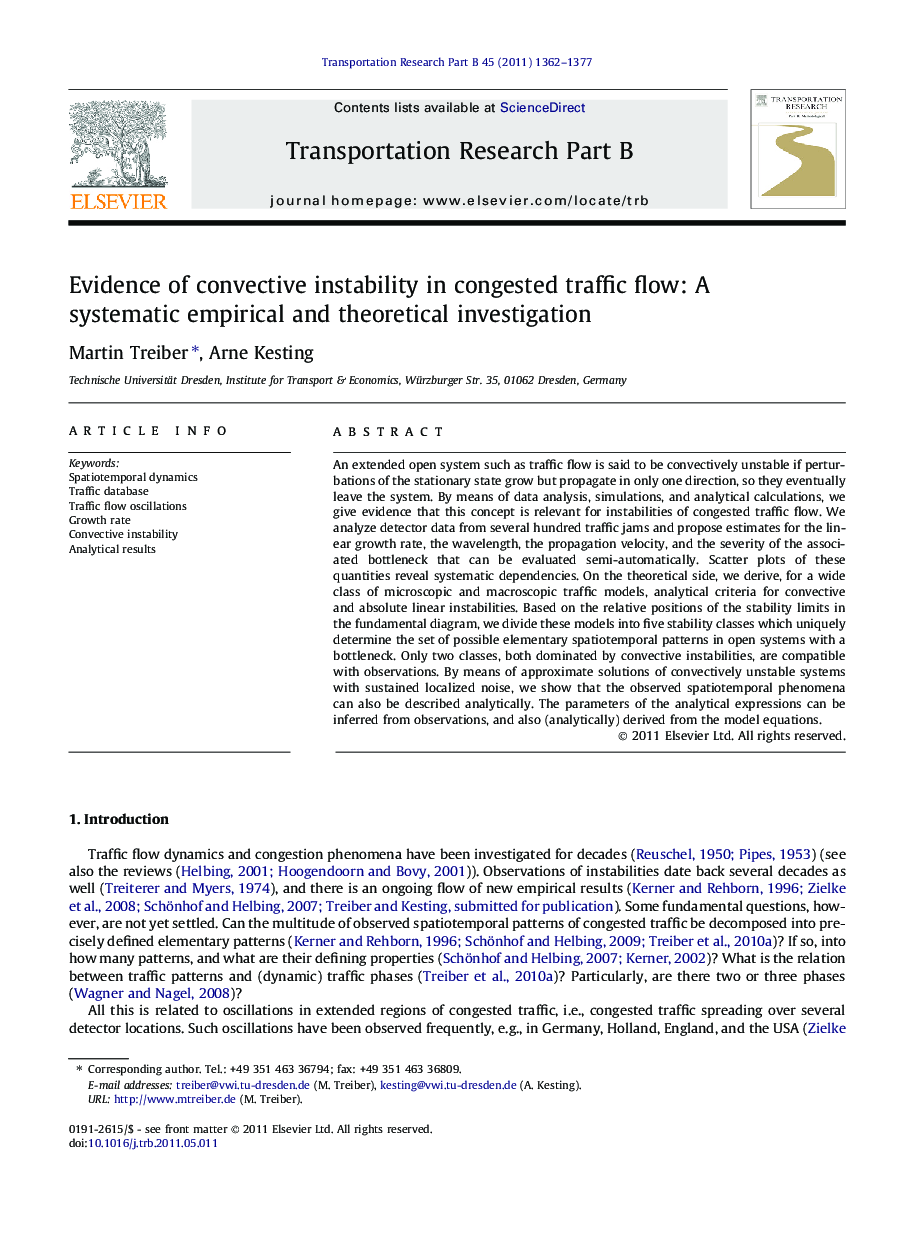| Article ID | Journal | Published Year | Pages | File Type |
|---|---|---|---|---|
| 1132543 | Transportation Research Part B: Methodological | 2011 | 16 Pages |
An extended open system such as traffic flow is said to be convectively unstable if perturbations of the stationary state grow but propagate in only one direction, so they eventually leave the system. By means of data analysis, simulations, and analytical calculations, we give evidence that this concept is relevant for instabilities of congested traffic flow. We analyze detector data from several hundred traffic jams and propose estimates for the linear growth rate, the wavelength, the propagation velocity, and the severity of the associated bottleneck that can be evaluated semi-automatically. Scatter plots of these quantities reveal systematic dependencies. On the theoretical side, we derive, for a wide class of microscopic and macroscopic traffic models, analytical criteria for convective and absolute linear instabilities. Based on the relative positions of the stability limits in the fundamental diagram, we divide these models into five stability classes which uniquely determine the set of possible elementary spatiotemporal patterns in open systems with a bottleneck. Only two classes, both dominated by convective instabilities, are compatible with observations. By means of approximate solutions of convectively unstable systems with sustained localized noise, we show that the observed spatiotemporal phenomena can also be described analytically. The parameters of the analytical expressions can be inferred from observations, and also (analytically) derived from the model equations.
► Convective instability is relevant for describing congested traffic flow. ► Analytic criteria for convective instability derived for micro- and macro-models. ► Stability classes defined by the relative position of stability thresholds. ► Only two out of five stability classes agree with observations. ► Synchronized traffic and jams can be described by “two-phase” models.
